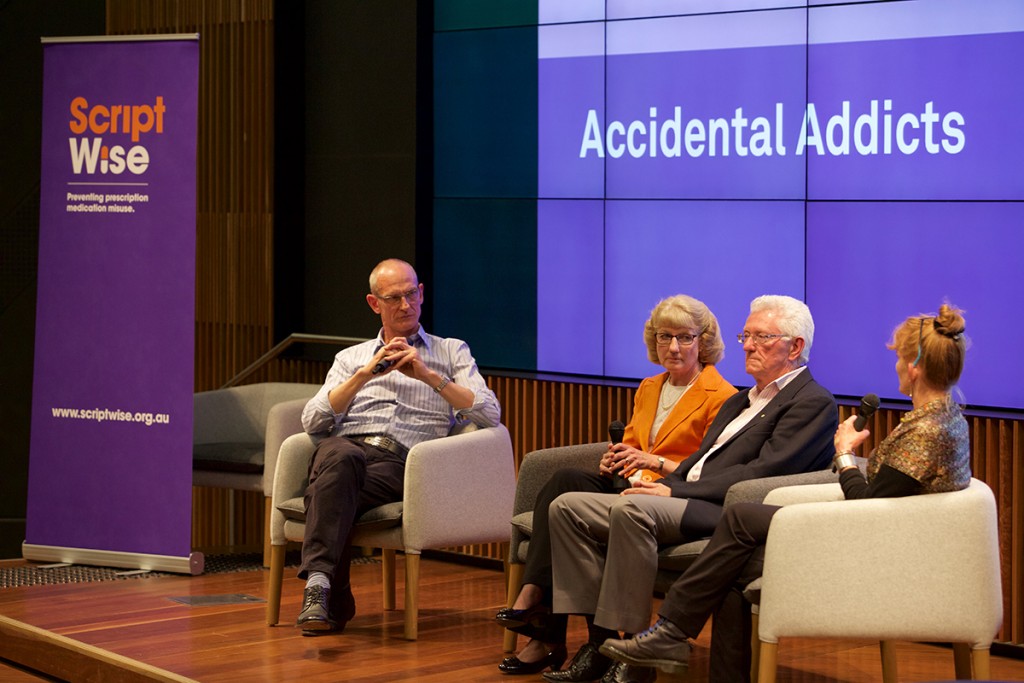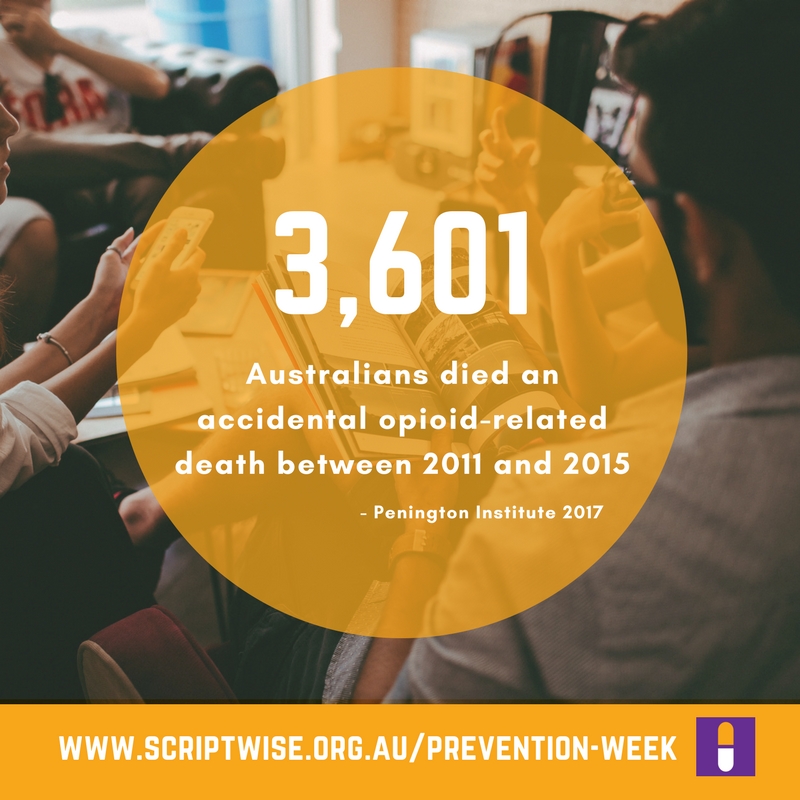The national rate of accidental death from opioids is on the rise, with the National Drug & Alcohol Research Centre reporting that 70% of opioid overdoses were due to pharmaceuticals (including strong painkillers) rather than heroin or other illicit drugs.
May 14-18 marks the inaugural National Prevention of Prescription Medication Dependence Week, a community initiative developed by our friends at ScriptWise.
Since October 2017, HealthEngine has had a proud partnership with ScriptWise, a not-for-profit organisation preventing prescription medication misuse and overdose fatalities in Australia. As ScriptWise shares our driving passion for improving the health of Australians, aligning with ScriptWise was something HealthEngine was very eager to do.
Formed in 2014, ScriptWise is making a tangible difference in Australia, by increasing medication education and playing a substantial role in preventing prescription medication misuse.
What is prescription medication dependence?
Prescription medication dependence occurs when the body develops a tolerance, which lessens the medication’s effectiveness, meaning increasing amounts are needed to achieve the same effect. Prescription medication dependence can happen to anyone in our community, and sometimes without them even realising it.
People who become dependent on medications can also lose control over their medication use, resulting in addiction.
Too many Australians are unaware of the risks
We only have to take a look at the figures around prescription drug use in Australia to understand the need for widespread education.
1) There are rising death rates associated with prescription medication
Accidental drug-related deaths now surpass road related fatalities across Australia.
According to the National Drug and Alcohol Research Centre, in 2013 (the most recent year for which national figures are available), prescription opioids were responsible for about 70% of 597 accidental opioid deaths.
2) Prescription numbers are increasing in the hundred-thousands each year.
Between 2009-15, there was a general increase in opioid prescriptions nationally, from around 2.5 million per quarter to around 3.5 million per quarter.
3) 80% of people taking opioids long term will experience an adverse event
Around one in five Australians experience chronic pain, for which opioids are often prescribed. Opioids are highly addictive and can interact harmfully with many other prescription medications. Approximately 80% of people taking opioids long term will experience an adverse event which can result in disability, hospitalisation, or even death.
Prevention Week: Education is everything
With a large number of accidental drug related deaths resulting from a lack of warnings around mixing medication, improving education is key. But how? The first step is looking at how we can use technology to increase the education around prescription medication, and reminder systems to improve the correct medication adherence.
“Technology has a key role to play in helping patients manage their health,” said Bee Mohamed, CEO of ScriptWise. “Improving medication literacy and prescription adherence which will, in turn, improve a patient’s health outcome.”
Through education and raising public awareness, ScriptWise aim to use Prevention Week to help:
- prevent the risks and potential harms associated with using medicines such as opioids and benzodiazepines,
- reduce the stigma around seeking treatment when needed, and
- increase access to preventative and early intervention treatments within communities
ScriptWise has a range of resources available on their website for those wanting to get involved in Prevention Week, including useful contact lists and video case studies which practices can share with patients.
Data sources:
- General Practice Activity in Australia, 2015-16, Beach Data Research
- National Drug and Alcohol Research Centre
- Department of Health, Opioid Roundtable
- Australia’s Annual Overdose Report 2017, A Pennington Institute report


